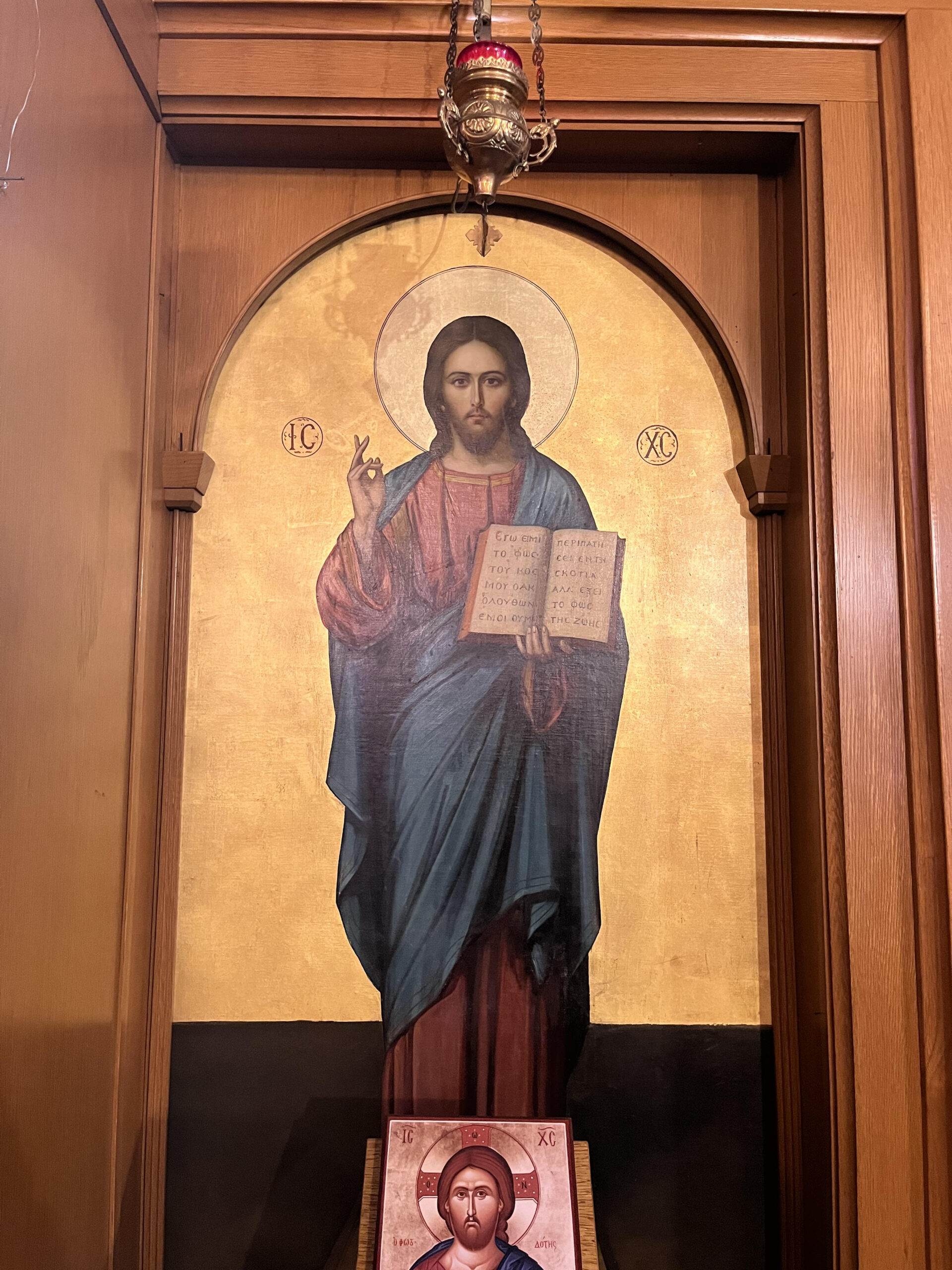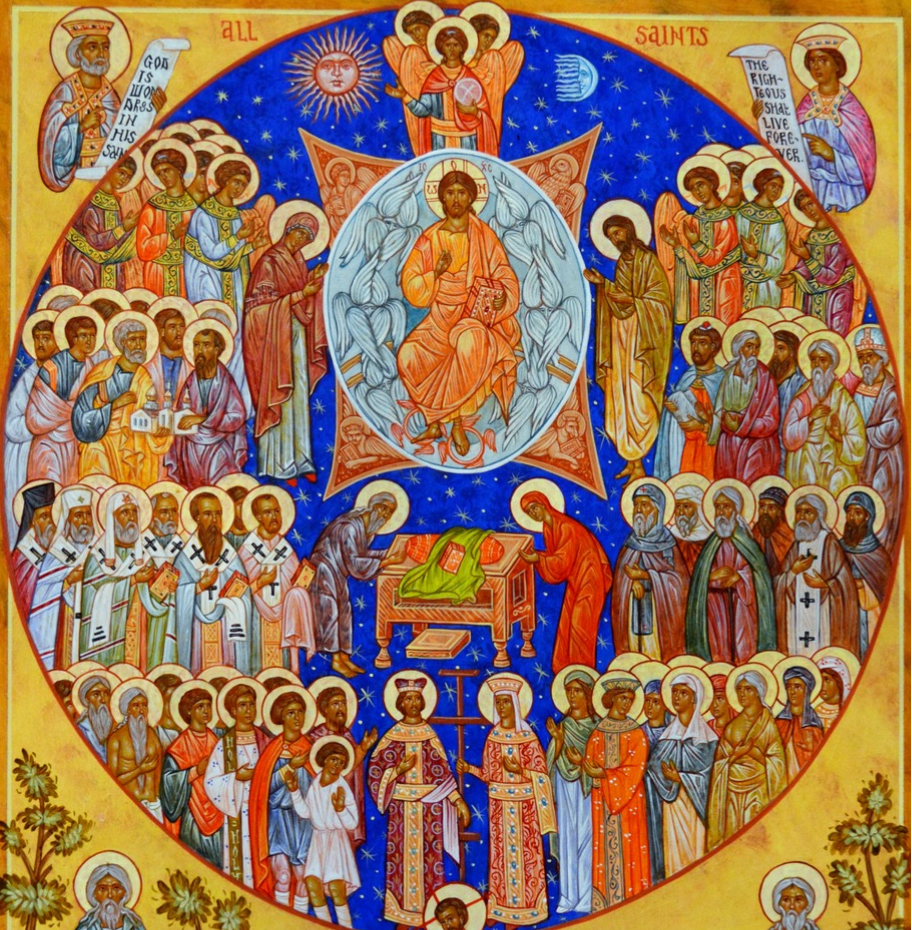Besides this you know what hour it is, how it is full time now for you to wake from sleep. For salvation is nearer to us now than when we first believed; the night is far gone, the day is at hand. Let us then cast off the works of darkness and put on the armor of light; let us conduct ourselves becomingly as in the day, not in reveling and drunkenness, not in debauchery and licentiousness, not in quarreling and jealousy. But put on the Lord Jesus Christ, and make no provision for the flesh, to gratify its desires. As for the man who is weak in faith, welcome him, but not for disputes over opinions. One believes he may eat anything, while the weak man eats only vegetables. Let not him who eats despise him who abstains, and let not him who abstains pass judgment on him who eats; for God has welcomed him. Who are you to pass judgment on the servant of another? It is before his own master that he stands or falls. And he will be upheld, for the Master is able to make him stand. Romans 13:11-14:4 (Epistle of Forgiveness Sunday)
Great Lent actually begins with the setting of the sun on Forgiveness Sunday. There is a special service called “Forgiveness Vespers” that is held in many parishes. This service not only includes the opportunity to ask forgiveness from fellow parishioners, but it contains the proclamation that Great Lent is now upon us. This announcement, chanted in a hymn called “The Great Prokeimenon” reads as follows:
Turn not Your face from Your child, for I am afflicted; hear me speedily. Give heed to my soul and redeem it. (Great Prokeimenon, Forgiveness Vespers, Trans. by Fr. Seraphim Dedes)
Thus, the Divine Liturgy on the morning of Forgiveness Sunday is the last liturgical gathering before the beginning of Great Lent, the last instructions before the journey of Great Lent begins, and so there are some appropriate pieces of advice for the faithful as we are about to set out on the journey.
Saint Paul tell us that it is “full time now for you to wake from sleep” (Romans 13:11). These words are said appropriately today to get our attention. If we have been spiritually sleeping this year, it’s time to wake up and start a journey to spiritual renewal. “Salvation is nearer to us now than when we first believed” (13:11). Another year has passed in our lives, we are closer to the Day of Judgement, which potentially is the day of our salvation, or our condemnation. Lent is a time to work on our salvation.
“The day is at hand.” (13:12) Lent is about to begin. “Let us cast off the works of darkness and put on the armor of light.” (13:12) It is time to set aside sinful habits and renew our walk with the Lord, our “light” and to put on ourselves the “armor of light”—love, forgiveness, patience, charity. “Let us conduct ourselves becomingly” to befit the season we are entering. This is not a time for reveling and drunkenness, debauchery and licentiousness, quarreling or jealousy. (13:13) It is a time to “put on the Lord Jesus Christ and make no provision for the flesh, to gratify its desires.“ (13:14) This is one of the reasons we are fasting, to put away something that gratifies the flesh, food, and to put on the “discipline” of living a Christian life. This is the ideal.
Saint Paul, in his Epistle to the Romans, even in the early years of the church, was astute enough to realize that each person approaches his or her journey to Christ with various levels of maturity and sincerity. This is still the same to this day. There are some who are going to make a very austere fast, a very engaged journey. There are others whose lives won’t be affected at all during Lent. Some will come to every service, and some will come only on Good Friday and Pascha. Saint Paul reminds us “let not him who eats despise him who abstains, and let not him who abstains pass judgment on him who eats. (14:3) The journey of Great Lent isn’t a competition against other people of who can fast the strictest or attend the most services, or deprive oneself the most. Rather the journey of Lent, while it takes place in a public forum, the church, is private and personal to each person making it. This will be confirmed in the Gospel lesson that will be reflected on next.
“Who are you (we) to pass judgment on the servant of another? It is before his own master that he stands or falls.” (14:4) This is very true. As regards our fellow Christians, our role is to encourage, not judge. I try to encourage people to come to church more during Lent, to fast, to go to confession, etc. But it is not my place, or our place, to cast judgment on what others choose to do or not to do during Lent. At the end, we will each stand alone before our Master, Jesus Christ, and stand or fall on our own merits—our own faith and works. Therefore, my role in Lent is to focus on my own journey to salvation, working on my faults, disciplining my body and my mind, and recommitting myself to the Christian life. It is also my role to encourage others to do the same. However this is done with encouragement, and not judgment.
It’s not to late to make a plan for how you’ll spend this Lent. Use the day to plan out how you’ll cast off your “works of darkness and put on the armor of (Christ’s) light (13:12) so that when we reach the feast of Pascha in seven weeks, and receive again the Light of Christ, your heart is fully prepared, emptied of darkness, and ready to be illumined again by the Light of the Resurrected Christ!
The time has come – the start of our spiritual contests, the victory over demons, the full armor of self-control, the angels’ dignity, the confidence before God. Thereby did Moses become conversant with the Creator, and heard the invisible voice. Lord, through fasting make us worthy to worship Your Passion and holy Resurrection, as You love humanity. (Doxastikon from Matins, Sunday of the Forgiveness, Trans. by Fr. Seraphim Dedes)
It’s “Go Time!”

